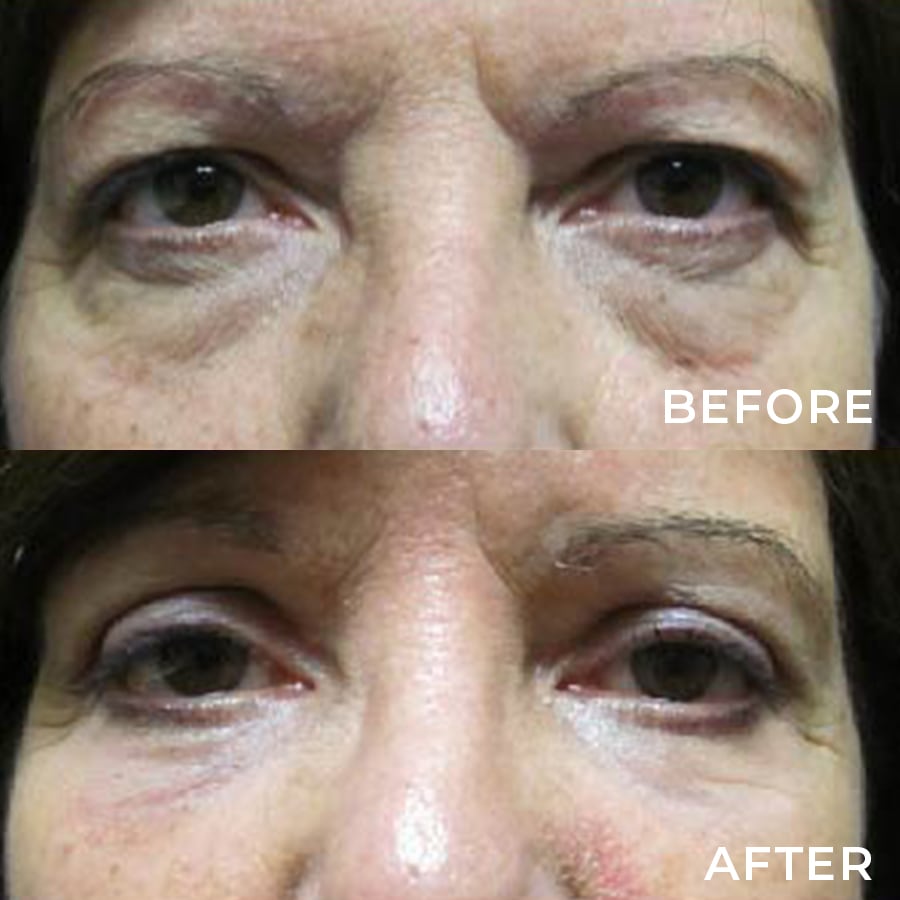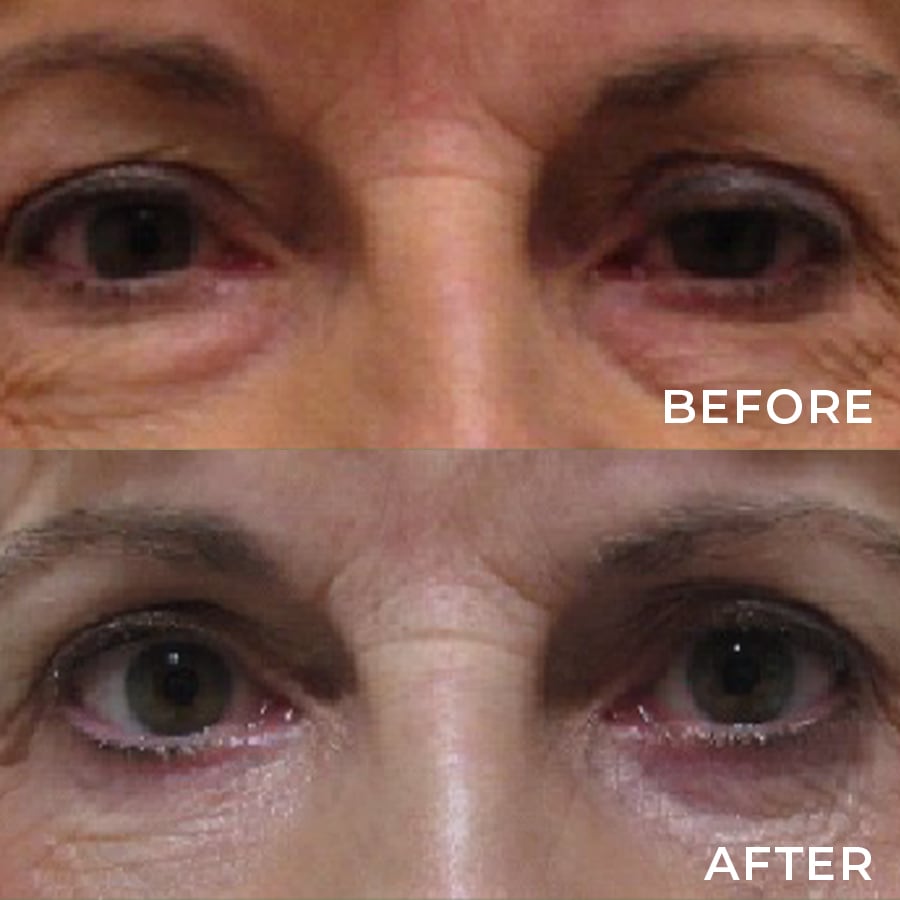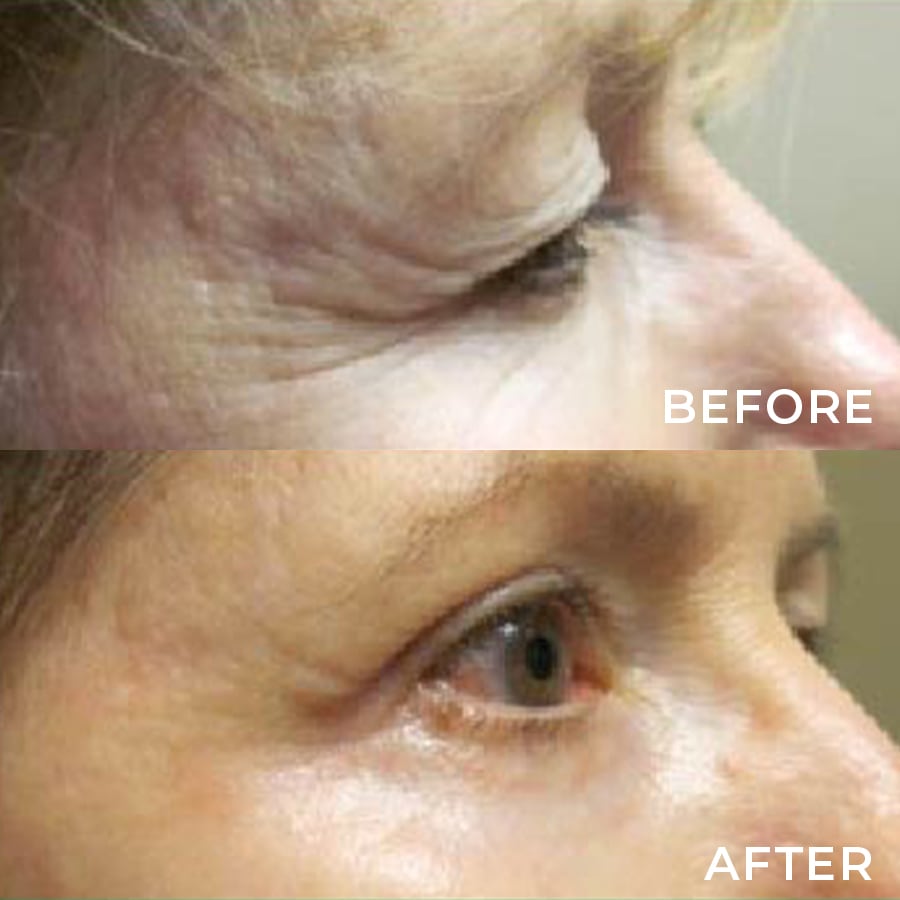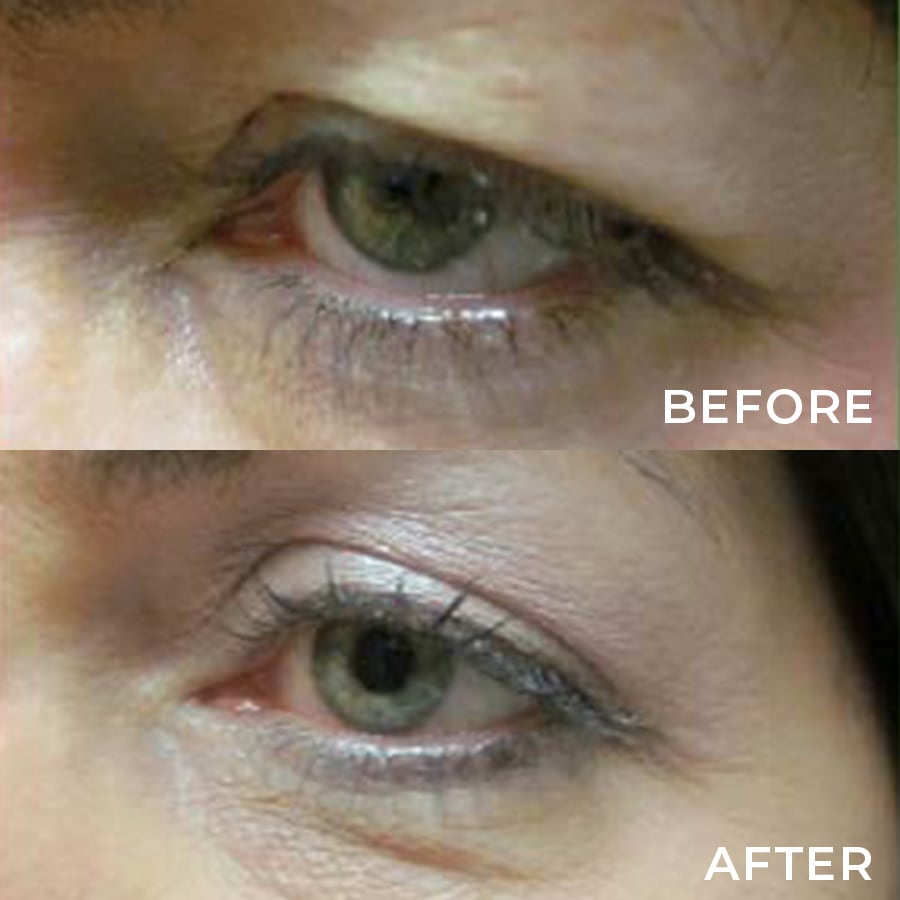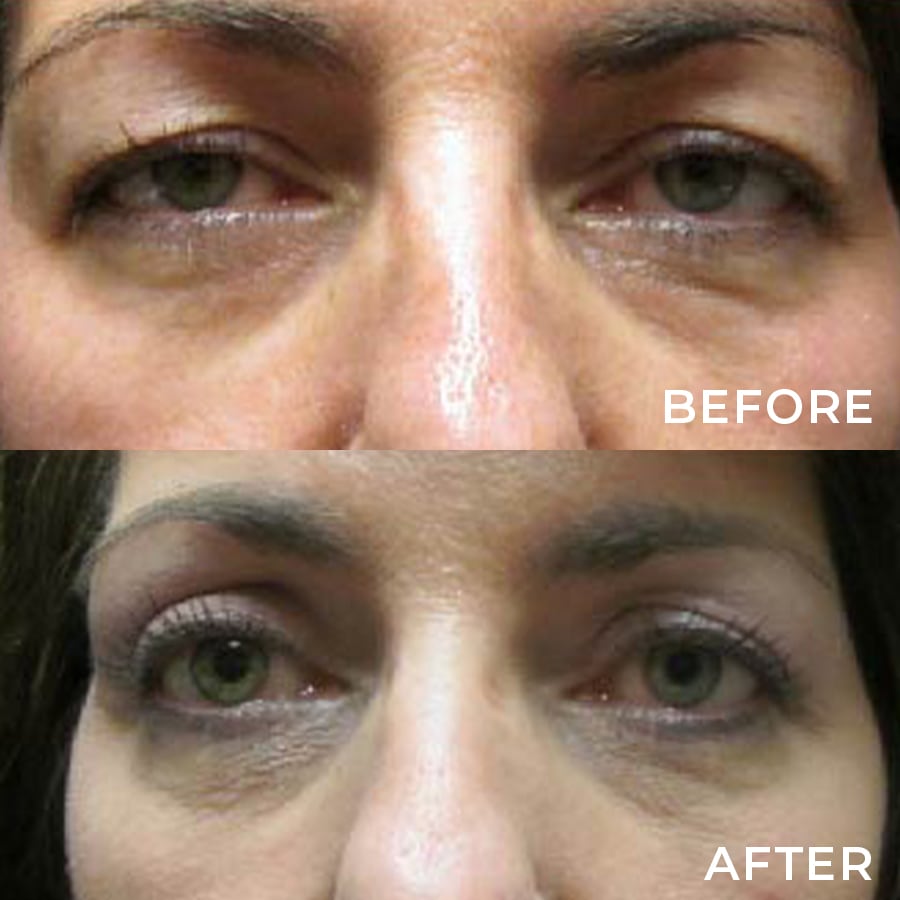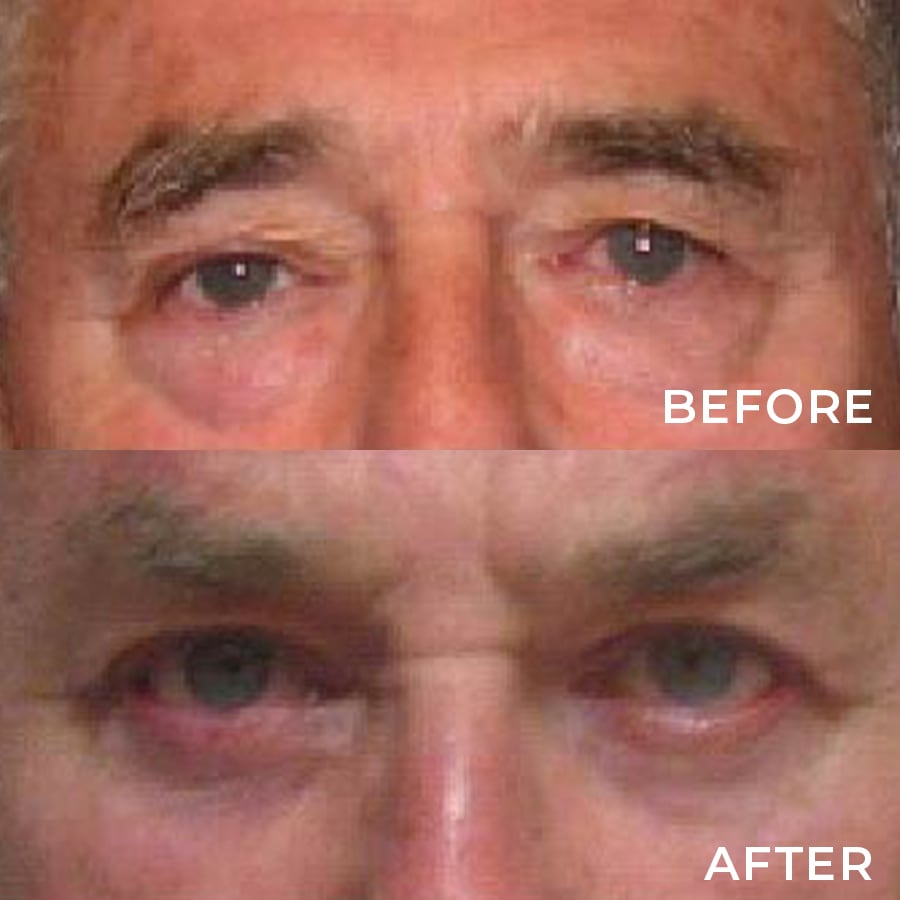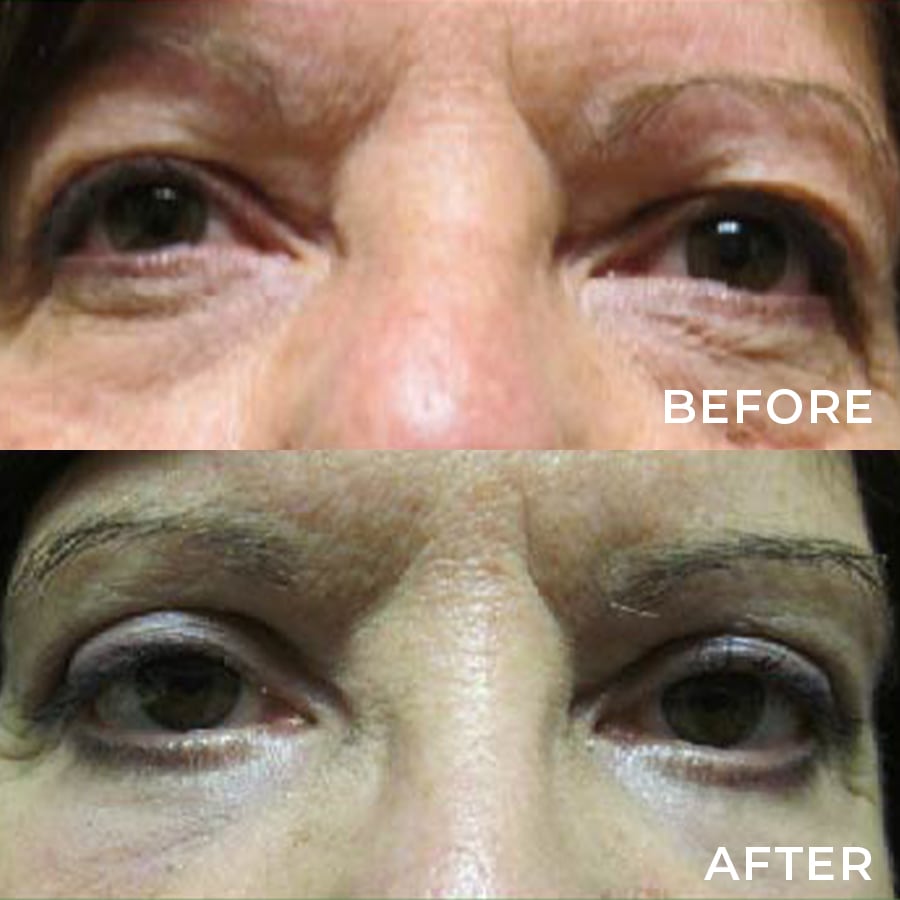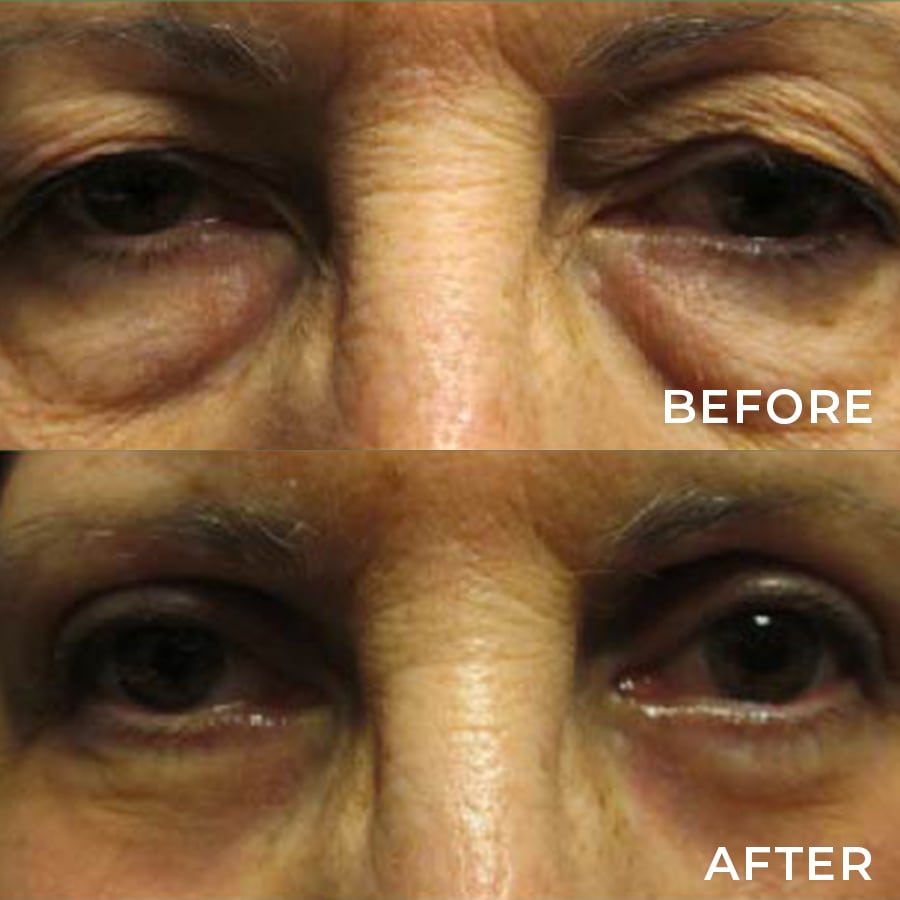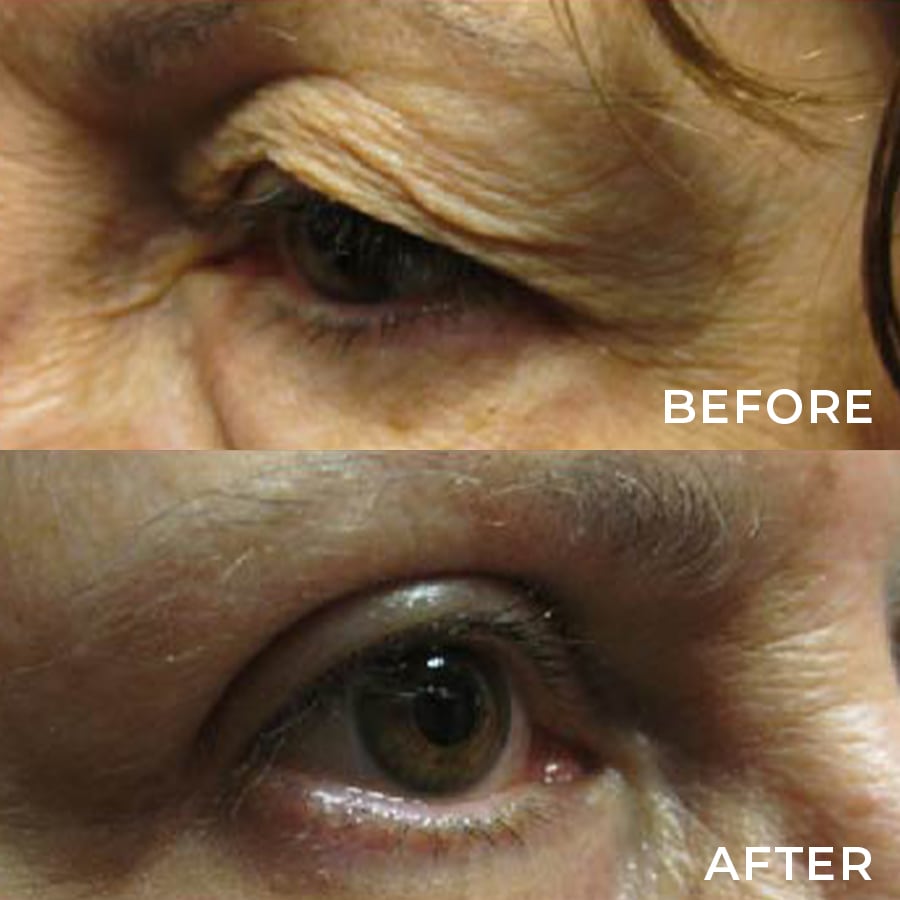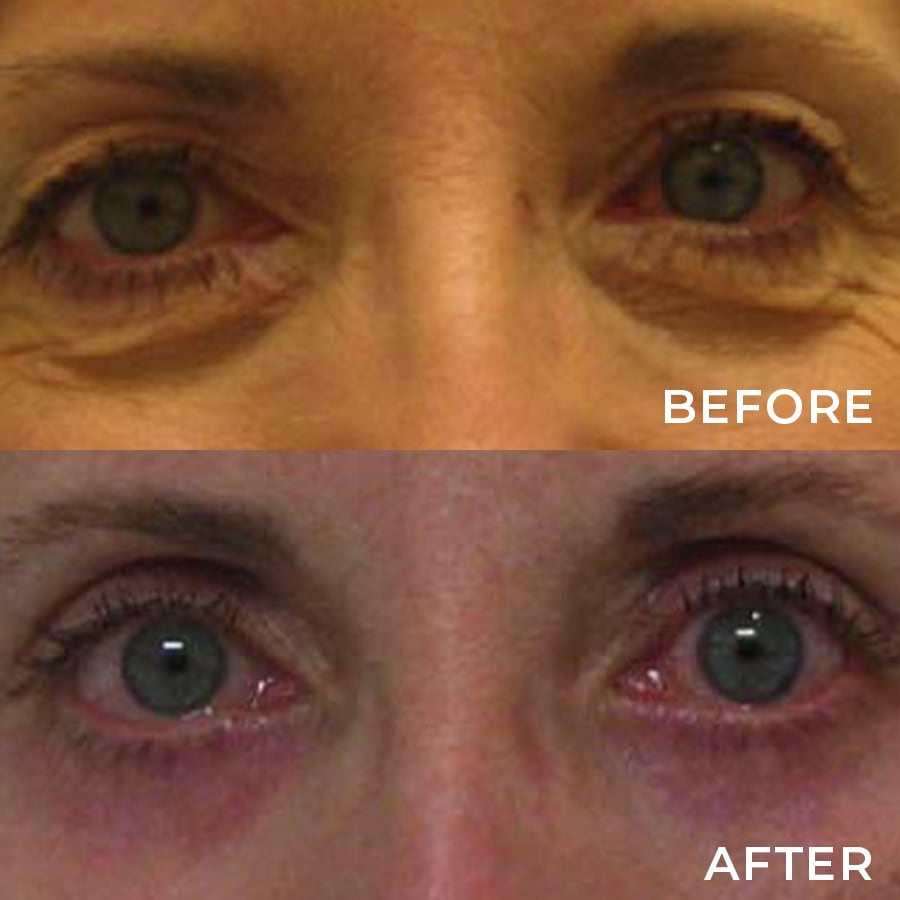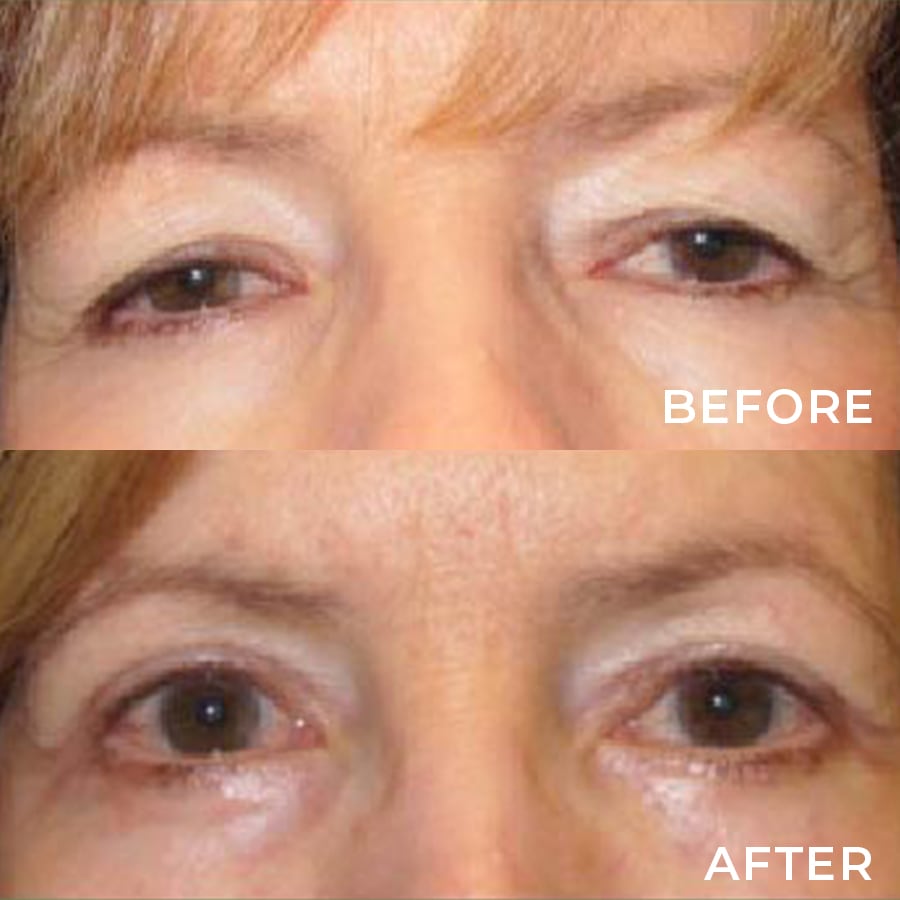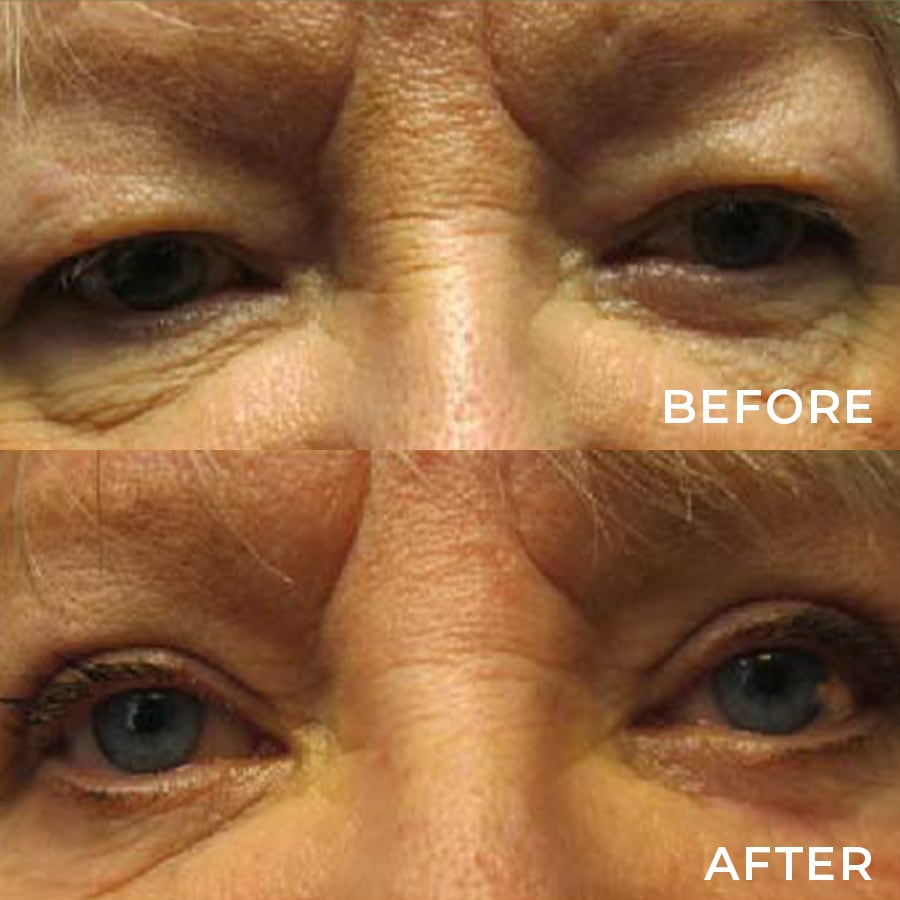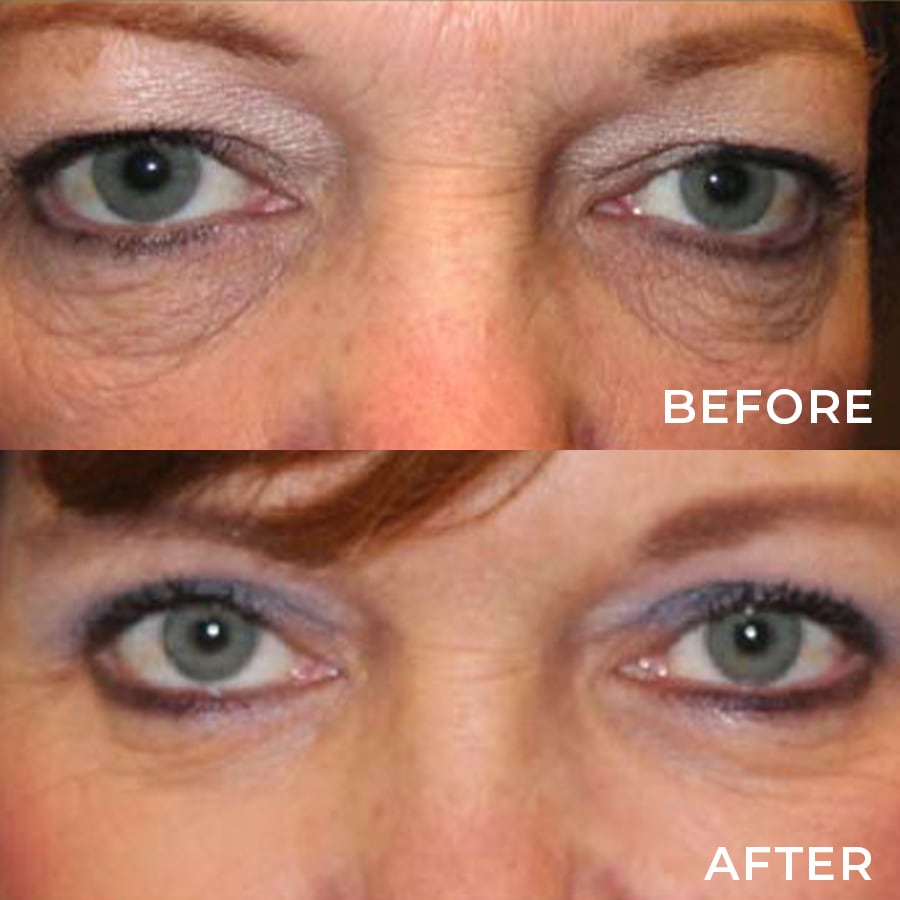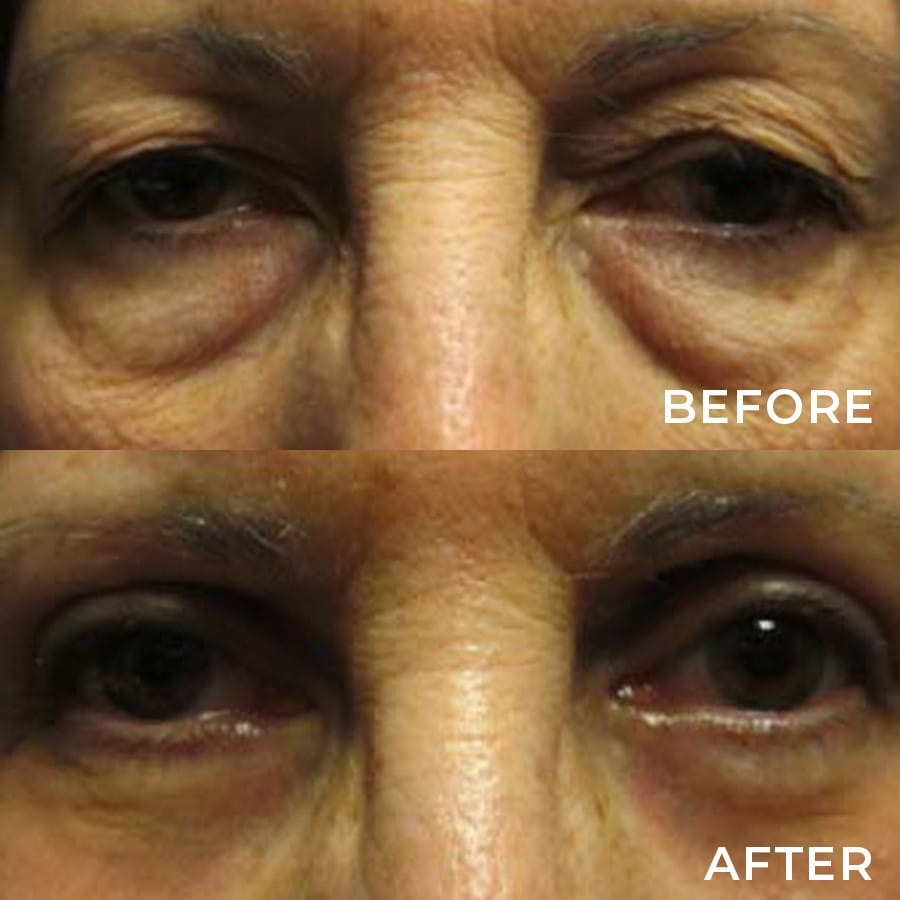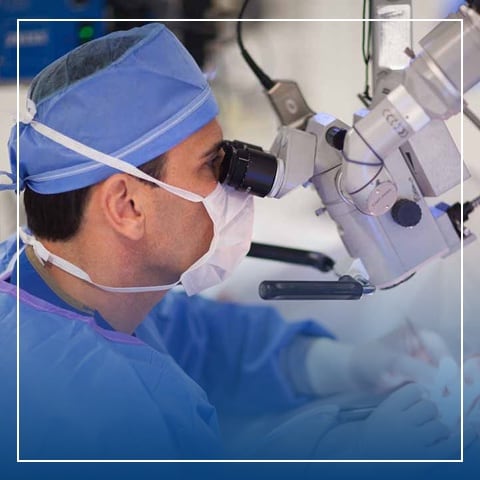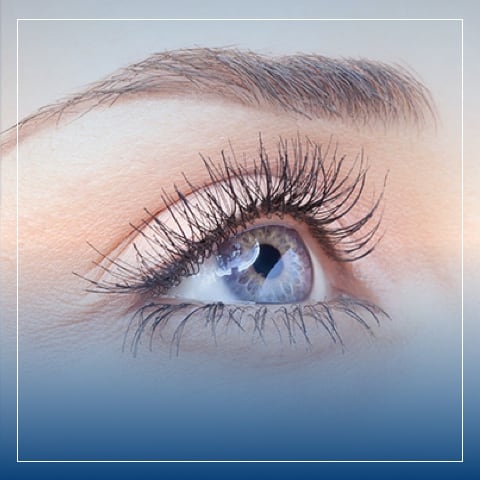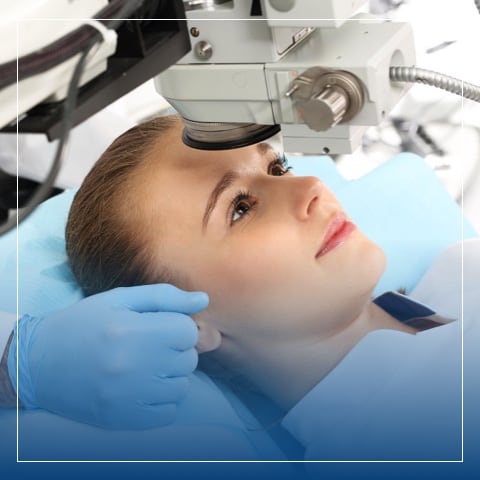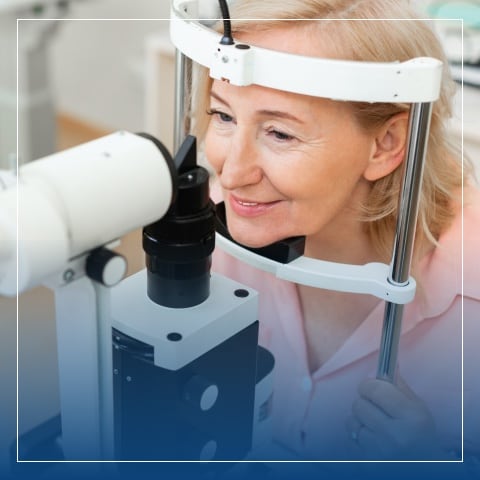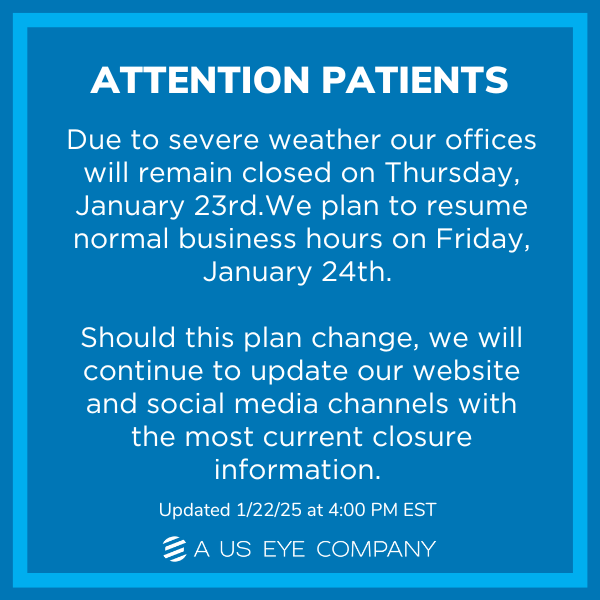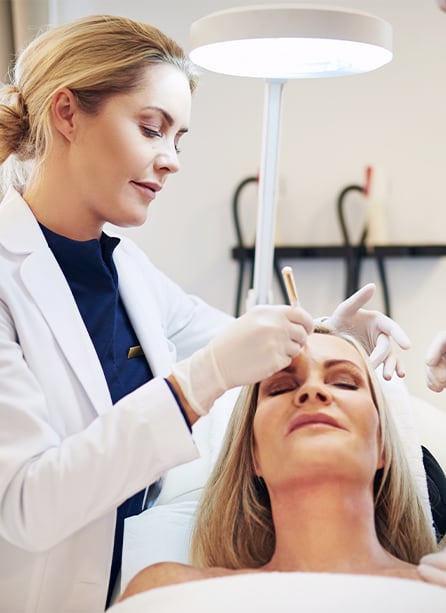

Cosmetic & Reconstructive Surgery
At Carolina Eyecare Physicians facial surgery center, we offer cosmetic and reconstructive surgeries. Facial and eye surgery can change your life for the better, restoring a youthful appearance or repairing eye function. See more and feel confident with your rejuvenated appearance.
Dr. Gene Howard has the experience and talent to help you achieve a more awake, youthful appearance! If you have any questions, give us a call and we will schedule you a consultation with one of our doctors to see if cosmetic eye surgery is right for you.
Blepharoplasty (Eyelid Surgery)
Blepharoplasty (eyelid surgery) is a surgical procedure used to treat ptosis (droopy eyelids). A surgeon removes skin, muscle, or fat tissue to improve tightness around the eye. Sagging skin can cause patients to look older and impact their peripheral (side) vision. Excess tissue can also affect eyelid function, making it difficult to completely open your eyes.
A blepharoplasty eyelid surgery is an outpatient procedure, meaning patients can go home the same day. However, patients are given mild sedation and should make appropriate arrangements ahead of time, such as a driver or other assistance. Typically, the process (including aftercare) lasts a few hours.
Will Blepharoplasty Work for Me?
You might consider blepharoplasty if droopy or sagging eyelids keep your eyes from opening completely or pull down your lower eyelids. Removing excess tissue from your upper eyelids can improve your vision. Upper and lower lid blepharoplasty can make your eyes appear younger and more alert.
Blepharoplasty may be an option if you have:
- Baggy or droopy upper eyelids
- Excess skin of the upper eyelids that interferes with your peripheral vision
- Excess skin on the lower eyelids
- Bags under your eyes
You may undergo blepharoplasty at the same time as another procedure, such as a brow lift, face-lift or skin resurfacing. Lower lid blepharoplasty is almost always done for cosmetic reasons.
What to Expect
Your Surgical Experience
Your surgery will be performed in an outpatient setting. Ultimately, this means that our patients can go home directly following their procedure, with the help of a driver. Patients are usually given mild sedation from IV medication to ensure that they are comfortable. There is usually no need for general anesthesia or a breathing tube. Please plan on being at the center for a few hours for the entire process.
After Your Procedure
Following the procedure, patients are observed for a short time before they are allowed to go home. The first two days following surgery should be spent relaxing with the head elevated and applying ice packs. (If you don’t have an ice pack, you can also use frozen peas). Apply the cold compress to the area(s) 30 minutes on and 30 minutes off for the first 48 hours and then 4 times daily, until your follow-up appointment. This will help keep swelling to a minimum. You will be seen by Dr. Howard’s team one to two weeks following your procedure to ensure you are healing properly.

Ptosis (Drooping Eyelids)
Ptosis is when the upper eyelid droops over the eye. The eyelid may droop just a little, or so much that it covers the pupil (the black dot at the center of your eye that lets light in). Ptosis can limit or even completely block normal vision. Children and adults can have ptosis. Fortunately, this condition can be treated to improve vision as well as appearance.
Causes of Ptosis
Adults get ptosis (called involutional ptosis) when the levator muscle stretches or separates away from their eyelid. This can be caused by aging or an eye injury. Sometimes ptosis happens as a side effect after certain eye surgery. Rarely, diseases or tumors can affect the eyelid muscle, causing ptosis.
Your ophthalmologist will find the cause of your ptosis in order to recommend treatment. They will do a complete eye exam, and may also want you to have blood tests, X-rays, or other tests. The ophthalmologist will likely recommend ptosis repair surgery to help the eyelid muscle work better.
Ptosis Surgery
Ptosis surgery is done as an outpatient procedure in your ophthalmologist’s office. Local anesthesia will be used to numb your eye and the area around it. Sometimes, the surgeon may only need to make a small adjustment to the lid’s lifting muscle. Extra skin from the eyelid also may be removed to help the eyelid lift properly. For more severe ptosis, the levator muscle may need to be strengthened and reattached to the eyelid. As with any type of surgery, there are possible risks and complications with ptosis repair. Your ophthalmologist will discuss these with you.
Before eyelid surgery, be sure to tell your ophthalmologist about all the medicines you take. Include all prescription and over-the-counter medications, vitamins, and supplements. It is important for your eye surgeon to know if you take aspirin (or aspirin-containing drugs) or blood thinners, or if you have a bleeding problem.
Your Surgical Experience
Your surgery will be performed in an outpatient setting. Ultimately, this means that our patients can go home directly following their procedure, with the help of a driver. Patients are usually given mild sedation from IV medication to ensure that they are comfortable. There is usually no need for general anesthesia or a breathing tube. Please plan on being at the center for a few hours for the entire process.
Following the procedure, patients are observed for a short time before they are allowed to go home. The first two days following surgery should be spent relaxing with the head elevated and applying ice packs. (If you don’t have an ice pack, you can also use frozen peas). Apply the cold compress to the area(s) 30 minutes on and 30 minutes off for the first 48 hours and then 4 times daily, until your follow-up appointment. This will help keep swelling to a minimum. You will be seen by Dr. Howard’s team one to two weeks following your procedure to ensure you are healing properly.
Tearing Problems
Tears are essential for healthy eyes. A delicate balance of tear composition, quantity, and drainage ensures the eye’s surface is nourished and protected. Excessive tearing or watery eyes are often a symptom of dry eye, producing more tears instead of quality tears.
Dry eye therapy, such as artificial tears, can help improve dryness to reduce excess tear flow. Punctal plugs may also be considered to prevent tears from draining, helping retain the tear film.
How to Reduce Tearing Problems
Dr. Howard has specialized training to find the blockage and open the drains, reducing or eliminating this tearing. He has perfected a surgical technique (Dacryocystorhinostomy) that bypasses the blocked drains. Patients quickly regain their normal appearance because this delicate technique accesses the blockage through the nostril only, leaving no visible signs of skin bruising or swelling by one day after the surgery.
Procedures to alleviate watery eyes vary according to your specific needs. The specific plan is determined after an exam in the office where the tear drainage pathway is examined very closely. These procedures are covered by medical insurance.

Reconstructive Eye Surgery
Reconstructive eye surgery can help restore structure or remove harmful tissue to improve vision or appearance. Eye surgery can also include the orbital structure (bone around the eye) and related face structures or tissue.
Reconstructive eye surgery may be necessary to help treat or restore eye structure due to:
- Eyelid cancer
- Facial trauma
- Socket fractures
- Tumors
Carolina Eyecare Physicians can help patients restore their appearance or vision. Book an appointment to learn about your options.
Learn About Your Surgery Options
Restoring eye tissue and enhancing the appearance of your eyes can benefit your vision. Patients can be confident with our team at Carolina Eyecare Physicians. We have the training and experience to deliver the best possible results.
Contact us for more information about facial cosmetic surgery and reconstructive surgery.
Frequently Asked Questions about Oculoplastic Surgery
Will I Still Look Like “Me” After Surgery?
A skilled cosmetic eye surgeon is able to enhance your appearance while still maintaining your unique look. Our patients often report receiving comments like: “You look great—did you do something with your hair?”… “Have you lost weight?”…or “Have you been on vacation?”
Is Dr. Howard Qualified?
At all times, Dr. Howard’s qualifications, including his board certification, education, extensive training, research experience, and many contributions to the field of oculoplastic surgery are available to you. Please read more here.
Is Oculoplastic Surgery Safe?
As with all surgery, certain risks are involved. However, oculoplastic surgery risks and problems are fairly uncommon. Please do not hesitate to ask us about risks during your consultation. We will be happy to provide information about the possible risks associated with the surgical procedure you may be considering.
How Soon Can I Go Home After Surgery?
Great news, most oculoplastic surgery procedures are performed on an outpatient basis! You will not be allowed to drive yourself home, so please be sure to arrange to have someone drive you home. Please let us know in advance if transportation will be a problem.
In most cases, your eyes will not be patched following your surgery, and you will be able to take care of yourself without another person’s help. You will receive instructions on how to clean your eyelids after surgery, when you can return to a normal diet and activity level, and when you can resume wearing makeup.
What About Bruising and Swelling?
At first, bruises may become larger as the blood spreads out under the skin. You may develop a “shiner” as gravity often pulls blood into your cheek. Then, as your body reabsorbs the blood, the color of the bruise may change progress from red to purple to green to yellow. Most bruising goes away within one to two weeks. Bruising may be more severe if you are elderly, have light skin, or if you take blood thinners or steroid medicines.
To alleviate this, make sure to keep your head elevated, and use cold during the first 48 hours after surgery.
How Much Pain Will I Have After Eye Plastic Surgery?
Discomfort is common after any surgical procedure and should be expected. Many patients report relatively little pain after their procedure, but Dr. Howard will prescribe pain medication that you can take after surgery, as needed. Some patients may be able to switch from prescription medication to Tylenol after only a few days.
How Long Will It Take to Heal After Surgery?
Most incisions begin to heal within a few weeks, especially incisions on the eyelids. However, incisions on the cheek and forehead may take longer to heal.
If Dr. Howard performed laser resurfacing at the same time as your eyelid surgery, it may take longer for you to heal. You will receive special instructions for skincare. We can talk with you more in-depth about this at your appointment.
Will I Have a Scar?
There is usually very minimal scarring, if any.
Where Will my Surgery Take Place?
Dr. Howard performs oculoplastic surgery at two facilities. Either East Cooper Regional Medical Center in Mt. Pleasant or The Physicians’ Eye Surgery Center of Charleston.
Locations
We have several convenient locations throughout South Carolina. Please view the nearest location to you or get directions below.
Our Services
News
Protect Your Eyes at Work: Eye Exam Basics for Busy Employees
Eye ExamReviewed By: Dr. Denise Carter, OD Deadlines loom, inbox alerts ping, and the glow of a monitor fills your field of view. In the rush, it’s easy to ignore the slow burn behind your eyes or the text that looks just a shade fuzzier than yesterday. Modern jobs pile on visual stress all day long, […]
Read More… from Protect Your Eyes at Work: Eye Exam Basics for Busy Employees
The Role of Diabetic Eye Exams in Preventing Age-Related Macular Degeneration
Diabetic Eye ExamsReviewed By: Dr. Kimberly Carter, OD Eyes often seem fine until, almost overnight, road signs fade or print looks washed in fog. In many cases, the trouble started months earlier, deep inside the retina where fragile vessels and macular cells respond to high blood sugar. A once‑a‑year dilated diabetic eye exam remains the surest tool for […]
Read More… from The Role of Diabetic Eye Exams in Preventing Age-Related Macular Degeneration
How Light Adjustable Lenses Are Redefining Post-Cataract Vision Correction
Light Adjustable LensReviewed By: Dr. Kerry Solomon, MD The field of ophthalmology has taken a major leap forward with the introduction of the Light Adjustable Lens (LAL) by RxSight, offering a groundbreaking alternative for patients undergoing cataract surgery. At Carolina Eyecare Physicians, we’re proud to offer this cutting-edge solution that gives patients the opportunity to achieve truly […]
Read More… from How Light Adjustable Lenses Are Redefining Post-Cataract Vision Correction
Protect Your Eyes at Work: Eye Exam Basics for Busy Employees
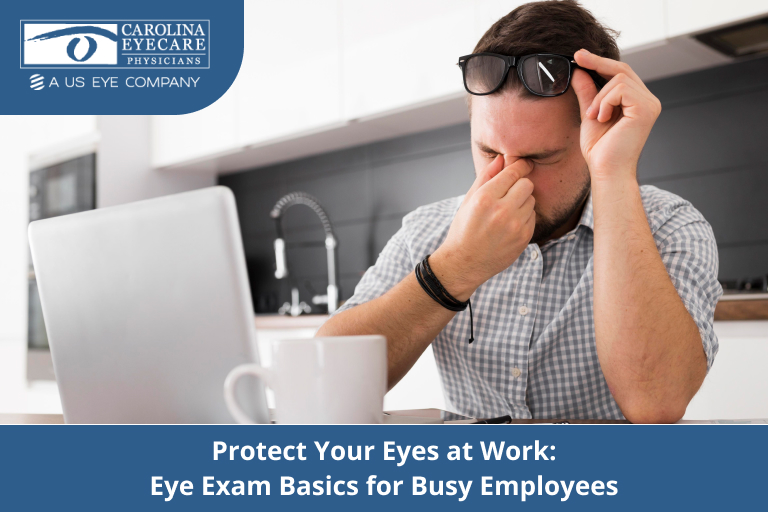
Reviewed By: Dr. Denise Carter, OD Deadlines loom, inbox alerts ping, and the glow of a monitor fills your field of view. In the rush, it’s easy to ignore the slow burn behind your eyes or the text that looks just a shade fuzzier than yesterday. Modern jobs pile on visual stress all day long, […]
Read More… from Protect Your Eyes at Work: Eye Exam Basics for Busy Employees
The Role of Diabetic Eye Exams in Preventing Age-Related Macular Degeneration
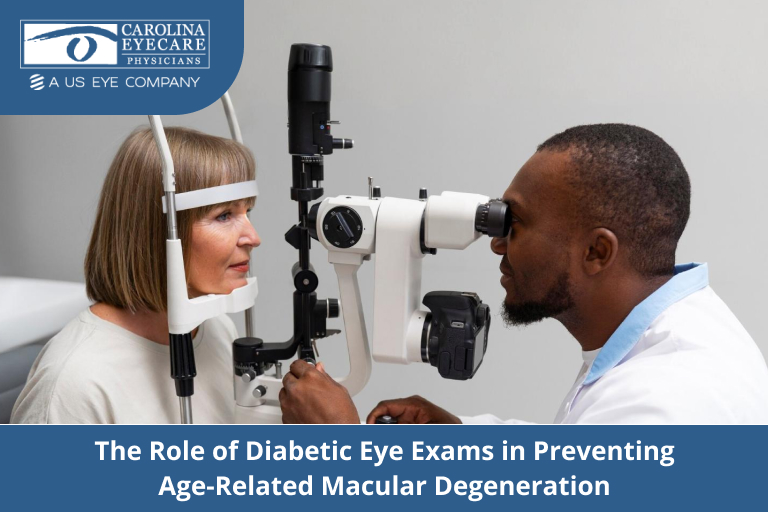
Reviewed By: Dr. Kimberly Carter, OD Eyes often seem fine until, almost overnight, road signs fade or print looks washed in fog. In many cases, the trouble started months earlier, deep inside the retina where fragile vessels and macular cells respond to high blood sugar. A once‑a‑year dilated diabetic eye exam remains the surest tool for […]
Read More… from The Role of Diabetic Eye Exams in Preventing Age-Related Macular Degeneration
How Light Adjustable Lenses Are Redefining Post-Cataract Vision Correction

Reviewed By: Dr. Kerry Solomon, MD The field of ophthalmology has taken a major leap forward with the introduction of the Light Adjustable Lens (LAL) by RxSight, offering a groundbreaking alternative for patients undergoing cataract surgery. At Carolina Eyecare Physicians, we’re proud to offer this cutting-edge solution that gives patients the opportunity to achieve truly […]
Read More… from How Light Adjustable Lenses Are Redefining Post-Cataract Vision Correction


We are a proud partner of US Eye, a leading group of patient-centric, vertically integrated multi-specialty physician practices providing patients with care in ophthalmology, optometry, dermatology, audiology, and cosmetic facial surgery.

